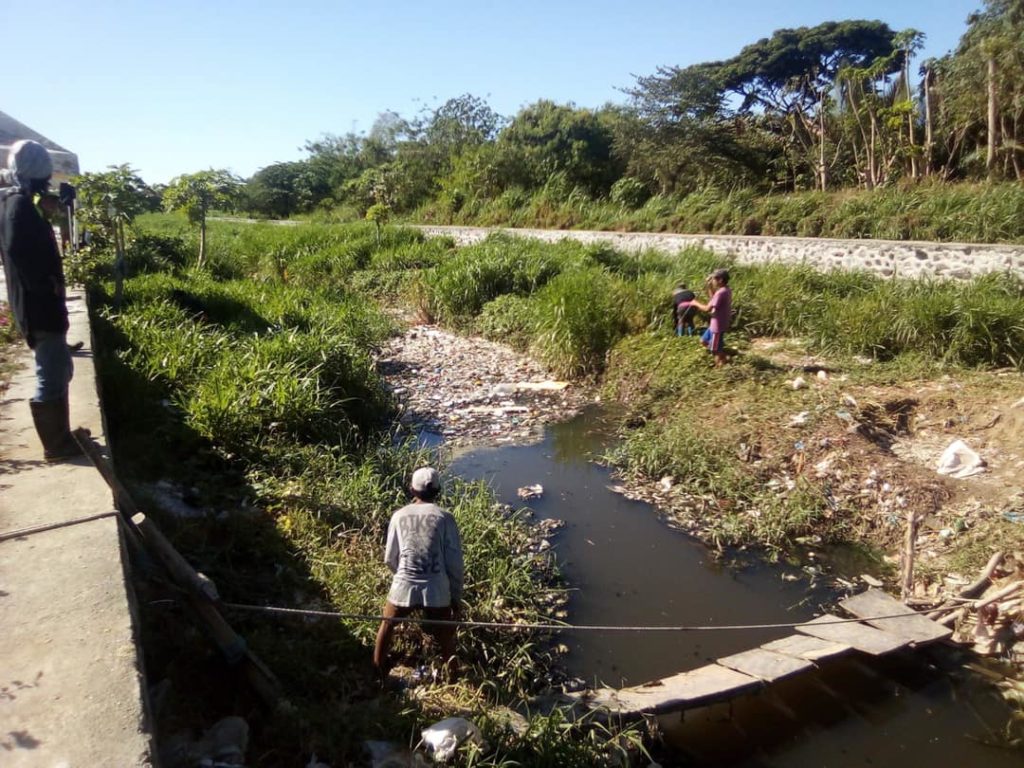
Volunteers of the Cebu City food for work program conduct a clean-up in the Bulacao River on Tuesday, May 28. | Photo courtesy of Nida Cabrera, head of the City Environment and Natural Resources Office (Cenro)
CEBU CITY, Philippines — The rehabilitation of the five major river systems in Cebu City continues after the massive cleanup last March headed by the Department of Environment and Natural Resources Office in Central Visayas (DENR-7).
This time, the Cebu City Environment and Natural Resources Office (Cenro) in coordination with the barangays has begun the food for work program where 15 volunteers for each river system will be given 3 sacks of rice and 6 canned goods for cleaning the rivers of Bulacao, Lahug, Guadalupe, Tejero and Tinago.
Nida Cabrera, Cenro head, said the program was aiming to encourage the homeless and the jobless to help clean the rivers in exchange for food.
Cabrera said that this arrangement would also help those people to avoid resorting to crime to feed themselves.
She said the city had prepared 80 sacks of rice, 2,000 canned sardines and 2,000 canned beef loaf for the volunteers, who could register at their barangay halls.
The work starts from 7:30 a.m. to 11:30 a.m. during the scheduled clean-ups.
On May 25, at least 30 volunteers already became the beneficieries of the program during another clean-up at the Guadalupe River and Lahug River.
READ: Cenro chief expects to collect more than 20 tons of garbage in March 9’s Lahug River cleanup
Another batch of 30 volunteers received rice and canned goods on Tuesday, May 28, after cleaning the Bulacao River coastal portion.
Meanwhile, the Bulacao River clean-up was joined not by only volunteers for the food for work program but also by the personnel of the Coast Guard personnel and the Cebu City government.
At least three truckloads equal to 10 tons of garbage were collected from the coastal end of the 11-kilometer Bulacao River.
READ: 14 businesses that violated Cebu City’s trash ordinance help in Bulacao River cleanup
Cabrera said that Bulacao was one of the most polluted rivers in the city as people had been used to throwing their garbage into the river.
After three months since its massive clean-up on February 23, the Bulacao River once again returned to its “filthy” state.
“Hugaw gihapon sa nga tanan. Bisan unsaon natog limpyo manglabay gihapon ang mga tawo. (It is still so dirty. No matter how much we clean, people still throw their garbage into the river),” said Cabrera.
She encouraged the residents near the rivers to stop throwing their garbage into the river or face the penalty of P1,000 if they get would get caught. /dbs